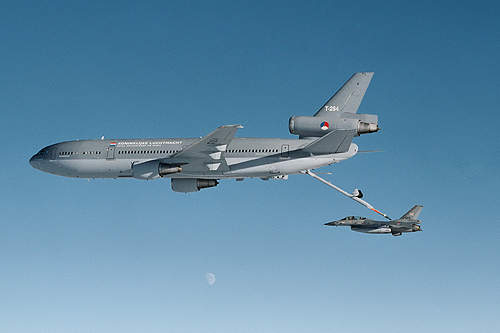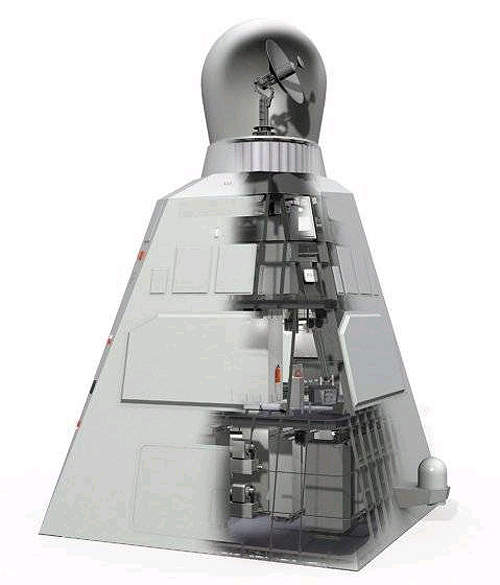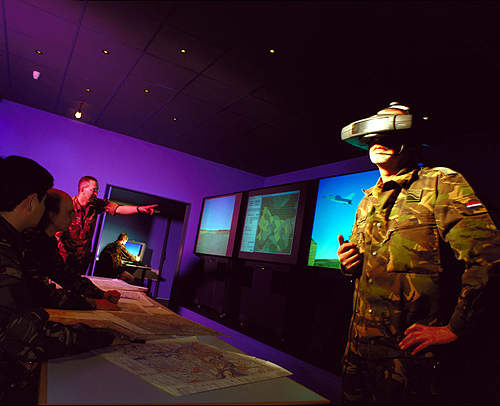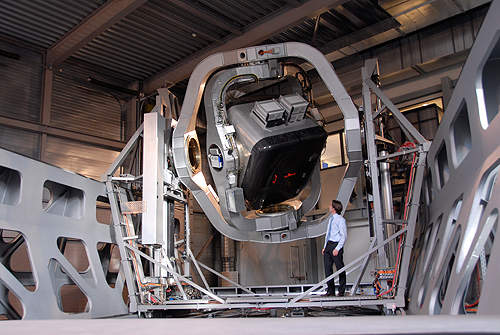TNO is an independent research and development organisation whose expertise contributes to the competitiveness of companies and the quality of societies. TNO’s unique position is attributable to its versatility, its in-depth knowledge in specific areas and capacity to develop groundbreaking innovations. TNO is a not-for-profit organisation and employs 4,300 highly educated professionals, of which most with an academic degree. Among them are many internationally recognised scientists and top experts.
TNO’s knowledge position is strong and focusses on seven themes. One of these is ‘Defence, Security and Safety’, which includes the Defence related activities as well as those concerned with safety of society. TNO helps industrial partners to innovate, improve and extend their product portfolio by knowledge and technology transfer. TNO has in-house production capability only for research and evaluation purposes and therefore has the ability to manufacture unique prototypes and demonstrators.
As a part of the strategy, TNO attracts industrial partners for joint development and commercialisation of product innovations. This makes TNO a one-stop-shop address and an excellent partner for Research and Development (R&D) of defence-related products. TNO initiates consortia for joint research programmes for Nato or the European Defence Agency, or is often asked by industrial companies to participate in them.
Partners in Defence Research and Development
TNO covers the whole range of Defence related research. Among others our activities include military operations, military equipment, command and control, operational decision making, threat and protection, instruction, training and simulation. In the area of Security and Safety, the emphasis lies on homeland security research and combating crime, calamity and terrorism.
As a contract research partner of the defence industry TNO is involved in the joint development of innovative solutions. TNO supports a large variety of defence equipment manufacturers: both system integrators, as well as manufacturers of specific components. As knowledge partner of the defence industry, we have participated in several joint international development and procurement programmes of, for instance, radar, antennae, sonar, infrared, MMICs and missile systems.
TNO is ISO-certified and exploits several testing facilities, such as:
- Ballistic and pyrotechnic test laboratory
- Facilities for modelling, simulation, specialised training and instruction
- DESDEMONA, a multi-purpose six-degree of freedom movement simulator
- Test facilities for chemical and biological weapons
- Various climate rooms (e.g. for altitude power testing of complete vehicles)
TNO is the strategic R&D partner of the Dutch Ministry of Defence, which is our largest client. In addition, TNO works for other governmental organisations, such as foreign Ministries of Defence, Nato, the European Defence Agency, and industrial companies such as Blücher, Thales, SAIC, EADS, BAE Systems, SELEX Communications, Rockwell Collins, Rheinmetall, TenCate, Corus and DSM Dyneema.
Track record
Besides as research partner, TNO has an impressive track record of successful joint development programmes. Examples are:
Tanker Remote Vision System (TRVS)
TNO developed a Tanker Remote Vision System, with corresponding testing equipment, for the Royal Netherlands Air Force. The Air Force now has a sophisticated vision system to enable fighter jets to be refuelled in flight by KDC-10 tankers. This new vision system makes in-flight refuelling three times more accurate than with the naked eye, and is of great help to the boom operators.
Integrated Mast
On the new Holland Class Patrol Vessel of the Royal Netherlands Navy most of the sensor technology has been integrated in the mast. This Integrated Mast concept forms a light weight, fragment and blast hardened carrier platform for radars, optical and IR sensors, and communication antennae. It was designed by TNO in cooperation with Thales NL and the Dutch Ministry of Defence.
Forward Air Controller Training Simulator (FACSIM)
Live training of Forward Air Controllers with real aircraft is expensive and dependent on variable factors, such as limited availability of aircraft and weather conditions. In addition, trainees experience a gap between classroom training and live training. The system is based on a simulated environment that enables the future Forward Air Controller to acquire and train skills. Since 1997 hundreds of trainees from the Netherlands, Belgium and the United States have used FACSIM to practice their skills.





